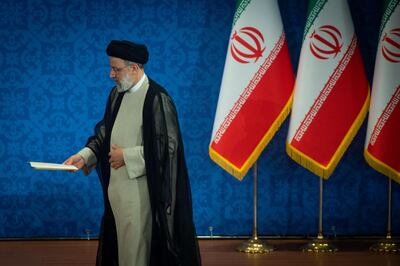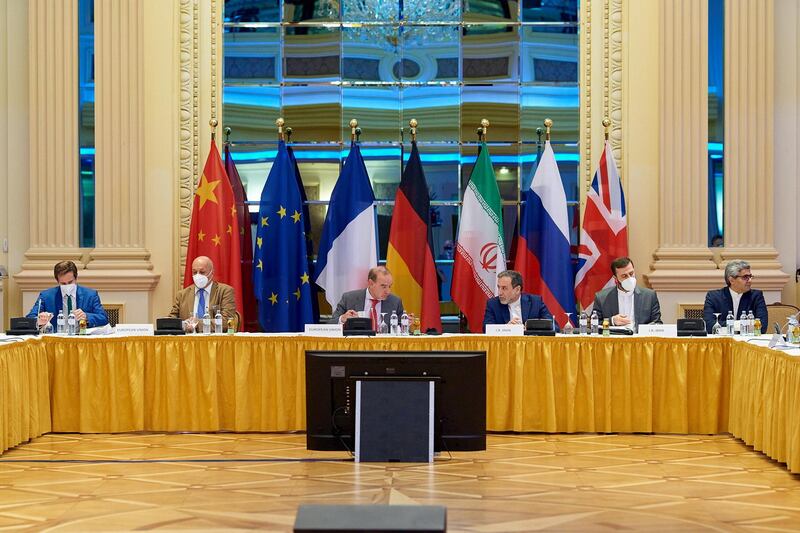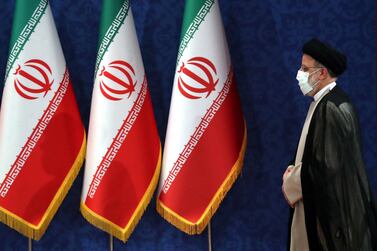US sanctions on Iran could be coming to an end soon, departing Iranian President Hassan Rouhani said on Wednesday.
Addressing the Cabinet and the Iranian people, Mr Rouhani spoke about the ongoing nuclear talks and claimed that "the government has done a great job and ended the [economic] war".
"Thanks to the self-sacrifice of the people and the instructions of the Supreme Leader, who was able to pull the United States to the negotiating table in Vienna, we were able to resolve important issues."
Mr Rouhani said that Iran's chief negotiator Abbas Araghchi had been given the authority needed to move forward and finalise a deal.
"We can end the sanctions today," he said.
Earlier in the day, Mr Rouhani's chief of staff said negotiations between Iran, the US and Europe in Vienna had "progressed a lot".
Addressing the Iranian Students News Agency on the sidelines of a cabinet meeting, Mahmoud Vaezi said that the different sides had agreed on all economic issues and had agreed that more than 1,000 Trump-era sanctions should be lifted.
A US State Department spokesperson said progress has been made, but "nothing is agreed until everything is agreed".
"The precise nature and sequence of the sanctions-related steps that the United States would need to take to achieve a mutual return to compliance with the JCPOA objective is a subject of the talks," they said.
"As we have said, this has been a long road. We've continued to make progress toward defining the contours of an understanding of how we can return to mutual compliance with the JCPOA.
During negotiations of this complexity, negotiators try to draft text that capture the main issues, but again, nothing is agreed until everything is agreed."
They added that Special Envoy for Iran Robert Malley and the US delegation anticipated returning for another round of negotiations soon.
Mr Vaezi said sanctions on people and groups connected to the supreme leader would be lifted, but he did not specify whether this would also include Iran's incoming president, Ebrahim Raisi, who was hit with sanctions by the US in 2019.

Mr Vaezi also stressed that the departing administration would be working in tandem with the new incoming government to ensure continuity in policy and that no decisions were being made that the new president would be unsatisfied with.
Mr Raisi, Iran's newly elected hardliner president, is due to take office on August 3.
The statements from the Iranian officials came only days after US National Security Adviser Jake Sullivan said the talks in Vienna, which adjourned for a break on Sunday, were far from over.
European officials, however, signalled a more optimistic tone on Wednesday with Germany's foreign minister Heiko Maas insisting he saw "good chance" of concluding the talks soon on reviving the nuclear deal.







